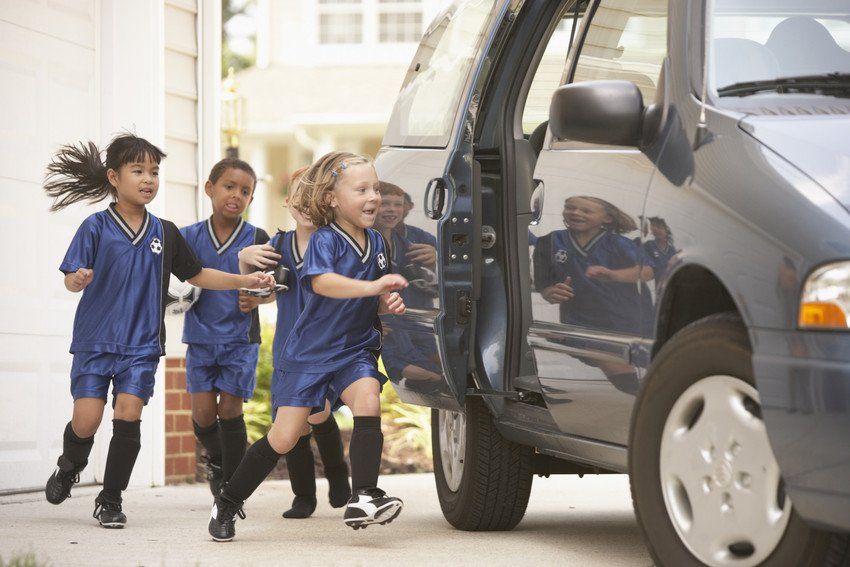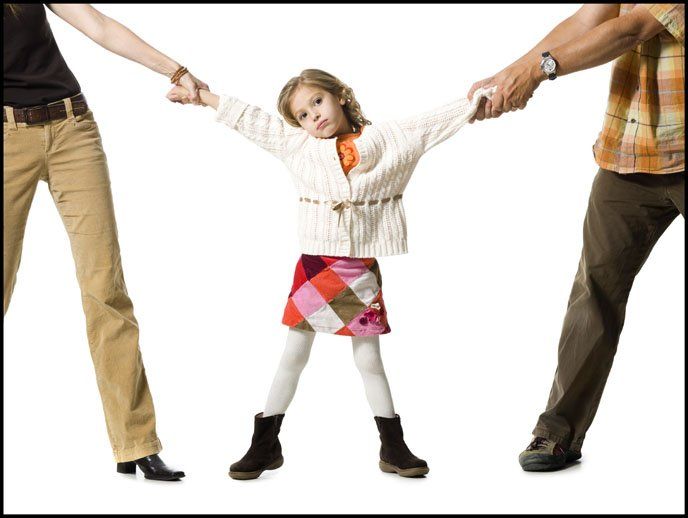How to get a divorce when you have children
- By Hawley & Rodgers
- •
- 12 Feb, 2019
- •

Going through a divorce is usually a very busy time in anyone’s life. You have to ensure that you get an equitable percentage of your joint assets, find a new property to live in and possibly deal with the emotional turmoil of your relationship split. In the middle of this maelstrom are your children - not the ideal situation.
Statistics from 2012 show that 42% of marriages in England and Wales end in divorce. While this is likely a very stressful time for both you and your partner, the repercussions for your offspring can be even more severe if the divorce is handled poorly. This is why you need quality family law legal advice. Like any loving and responsible parents, you and your divorcing partner must always agree to put your children first regardless of the difficult circumstances.
This is can be an arduous and challenging task, however, especially if you and your partner are not on the best of terms. If you and your partner are experiencing rancour then you must act to solve this as soon as possible because such a position can cause a child serious mental harm that can have negative repercussions for the rest of his or her life. By picking a skilled and reputable law firm you can disentangle this trying situation and focus on getting your children back to the normal lives they deserve.
Here are the key differences between a normal divorce and one with children:
Differences To A Normal Divorce (With Help From A Family Law Lawyer)
While there are many things to decide during a divorce, the division of the family home is often the biggest decision when it comes to assets. When the family home contains children, however, choosing who remains in the property becomes a very challenging conundrum to solve.
There are no definite rules when it comes to dealing with the family home as a decision is based on many different factors; what is certain though is that the most important consideration is if the children live there. As the law prioritises the welfare of children in a divorce, the provision of a secure home takes priority as the courts try to maintain continuity in a child’s life. Because of this, the person who performs the majority of the care for the children will be entitled to stay in the family home. Therefore the issue of who gets the house is intimately tied to whoever gets child custody - ergo the caregiver gets the house.
You might assume then that after this decision the other partner will no longer own any of the house or be free from contributing towards the mortgage - but this is not true. There a number of different arrangements that can be decided depending on the particular circumstances. Someone may be able to live in the family home up until the child reaches adulthood and the property sold soon after for example, or a person being entitled to a percentage of the house when it is eventually sold. If one of the parties wishes to buy another property they will naturally want to be released from paying a mortgage on the family home. In cases such as this, the court decides on mortgage payments while considering the person’s maintenance and whether the person staying in the house can afford the mortgage payments.
It might seem obvious but the main difference between a normal divorce and one involving children is that you have to ensure that your children aren’t affected negatively as much as possible. Whereas in a normal divorce the two parties may have acrimonious feelings for each other that leads to the divorce being more aggressive, confrontational and longer due to arguments over assets and more. Due to the existence of children, however, it is in both partner’s interests to make the process as quick and painless as possible:
- Respect
The end of a relationship that goes through a divorce can be a terrible time so it can be hard to remain civil to your partner in such an event. Nonetheless, even if you and your partner aren’t getting along well, you need to stay as polite and respectful to each other as this could potentially cause emotional problems that could last into the child’s adulthood.
Things that you should not do in front of your children during a divorce:
- Spoil them in an attempt to get them to prefer you over your partner
- Talk badly about your partner to them
- Have serious arguments with your partner in their presence
- Put them in the middle of an argument between the two of you
If a divorce is handled well, however, you can make sure that the divorce process affects them only minimally while giving them a good lesson in how to behave.
- Speed
While your divorce proceedings are happening, not only can you not get on with your own life - your children can’t get on with theirs. Even if you are civil to your partner, children are very perceptive at picking up on their parent’s moods and will be affected by any tension between the two of you. Unlike normal divorces where you might fight for a significant period of time to ensure that you get your deserved share of the assets, a divorce involving children should include an acknowledgement that the length of the divorce process is affecting their wellbeing. Sometimes it is up to the parents to swallow a divorce deal that they aren’t 100% happy with to make sure that the divorce is concluded and that their children can get on with their lives.
Telling your children about your divorce
When you and your partner break the news of your divorce to your children, it is perfectly understandable that they will be upset and seek reassurance about a number of different things. You should be prepared to answer questions similar to these:
- Did I do anything wrong?
Many children think that they are the reason that their parents are divorcing. Children need reassurance that mums and dads are divorcing each other, rather than them. Get across that there is nothing that they could have done to prevent the divorce and that you and your partner still love them, even if you two don’t love each other.
- Why are you divorcing?
Explain that divorce happens when a mum and dad don’t want to be married anymore or live together. Possible reasons such as growing apart or feeling that your love has changed are good things to say to them. Explaining it as a joint decision, even if it is not, is easier for the child.
- What can I do to get you back together?
Inform your children that they cannot make you and your partner get back together, just like how they didn’t do anything to make you get divorced. Make it clear that them being well behaved or badly behaved has no bearing on the divorce as it is you and your partner’s decision alone.
- Do I have to change schools?
A child’s school is the mainstay of a child’s life - it is where they spend a huge part of their lives and is most likely where the majority of their friends are. Having to move to another school is one of the worst things that can happen to a child so you must make all efforts to ensure that they stay at the school they are happy at.
- Who will I live with?
Seeing both mum and dad regularly is a necessity for most children so it is understandable that they can get worried that once one of you leaves the family home, they won’t be able to see him or her very much. Informing them who they will live with and how far away the other partner will live, will help the children get used to the new situation.
Where To Find A Family Law Attorney
Hawley & Rodgers are solicitors that have operated in family law for eighty years and offer huge experience and skill to help you in any legal matter. We consider it our mission to provide expert legal advice in a vast range of issues, especially with family, children, wills, probate, property and commercial law. If you live in Nottingham or the surrounding area and need family legal advice then contact us today. You can email us via enquiries@hawleyandrodgers.com or telephone one of our Hawley and Rogers’ local offices in Nottingham, Loughborough, Bingham, Stapleford and Long Eaton.










